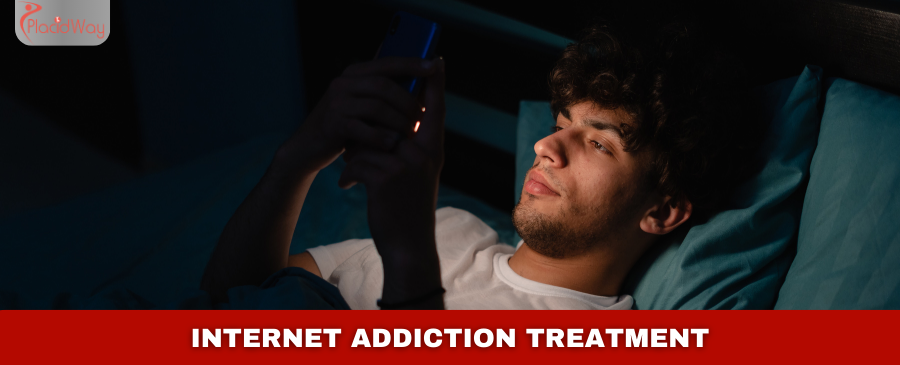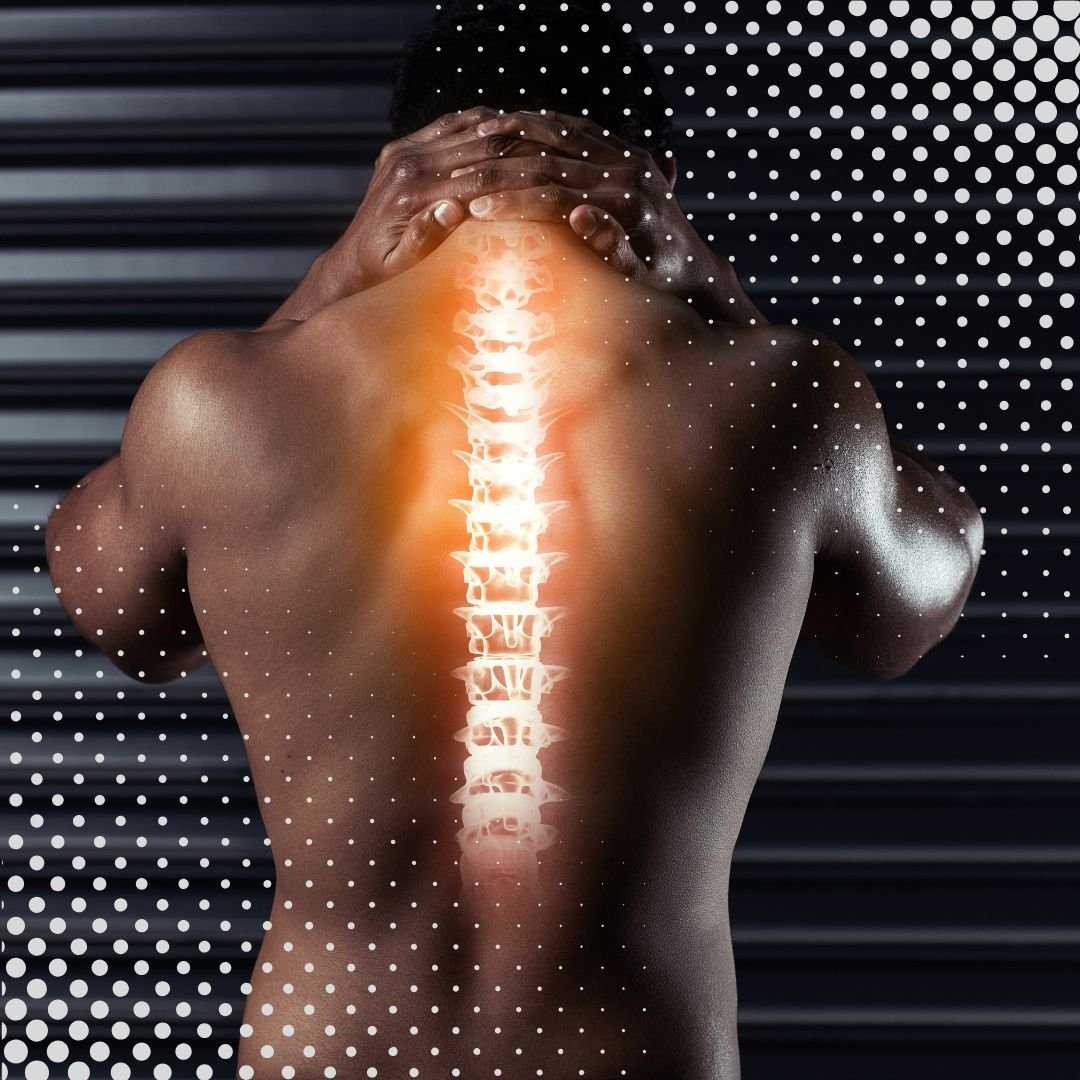
Reclaim Your Life: Effective Internet Addiction Treatment Abroad
In our hyper-connected world, technology offers incredible opportunities, but for some, the line between healthy use and problematic dependence can blur. If you find yourself or a loved one spending excessive time online—be it gaming, social media, online shopping, or endless browsing—to the detriment of work, relationships, or personal well-being, you might be struggling with what is often termed Internet Addiction, also known as Compulsive Internet Use (CIU) or Problematic Internet Use (PIU).
This isn't just about spending too much time on a screen; it's about a pattern of compulsive behavior that leads to significant distress or impairment in daily functioning. The good news is that specialized Internet Addiction Treatment exists, offering a path to recovery and a more balanced life. For many seeking intensive, focused care, exploring options for digital detox programs or tech addiction rehab abroad has become a viable and often beneficial choice, providing a fresh start away from daily triggers.
This comprehensive guide will help you understand the symptoms and causes of online addiction, explore available treatments, and consider why medical tourism for internet addiction treatment might be the right step for you. We'll delve into what to expect, how to ensure quality, and where to find world-class care.
What are the common symptoms of internet addiction?
Recognizing the signs of internet addiction is the first crucial step towards seeking help. These symptoms often mirror those of other behavioral addictions and can manifest in various ways:
- Preoccupation: Constantly thinking about past online activity or anticipating the next online session. The internet dominates thoughts even when offline.
- Withdrawal Symptoms: Experiencing feelings of anger, tension, depression, or irritability when internet use is reduced or stopped. This can feel like a genuine craving.
- Tolerance: Needing to spend increasing amounts of time online to achieve the same level of satisfaction or pleasure. What once felt enough, no longer is.
- Failed Attempts to Cut Back: Repeated unsuccessful efforts to control, cut back, or stop internet use. Promises to oneself or others are often broken.
- Loss of Interest: Neglecting or losing interest in previously enjoyed hobbies, social activities, or real-life relationships in favor of online activities.
- Continued Use Despite Consequences: Persisting in internet use despite knowing it's causing significant problems in one's life, such as job loss, academic failure, or relationship breakdowns.
- Deception: Lying to family members, therapists, or others to conceal the extent of internet involvement.
- Mood Modification: Using the internet as a way to escape from problems, relieve negative moods (e.g., helplessness, guilt, anxiety, depression), or self-soothe.
- Risk of Relationships/Career: Jeopardizing or losing a significant relationship, job, educational or career opportunity because of internet use.
If these signs resonate with your experience or that of a loved one, it's time to consider professional intervention. Understanding these signs of tech addiction or online gaming addiction can guide you towards appropriate support.
What causes internet addiction and who is at risk?
Internet addiction doesn't typically arise in a vacuum; it often develops from a complex interplay of psychological, social, and biological factors:
- Psychological Vulnerabilities: Individuals struggling with underlying mental health conditions such as depression, anxiety disorders, social phobia, ADHD, or obsessive-compulsive disorder may use the internet as a coping mechanism. It can offer an escape, a sense of control, or a way to avoid real-world interactions that feel overwhelming. Low self-esteem and body image issues can also drive excessive social media use.
- Neurobiological Factors: The internet, particularly online gaming and social media, can trigger the brain's reward system, releasing dopamine and creating pleasurable sensations. Over time, the brain can adapt, leading to a craving for these digital rewards, similar to substance addiction.
- Social Isolation and Loneliness: For those feeling isolated or disconnected, the internet offers a seemingly endless supply of virtual connections and communities, which can be a powerful draw. This can, however, exacerbate real-world social skill deficits.
- Environmental Factors: Easy, constant access to high-speed internet and devices makes it simple to fall into problematic usage patterns. Certain social pressures, like the need to be constantly "available" or to maintain a curated online persona, can also contribute.
- Personality Traits: Impulsivity, novelty-seeking, and a tendency towards escapism can increase an individual's susceptibility to developing internet addiction.
Who is at risk?
While anyone can develop internet addiction, certain demographics are more vulnerable:
- Adolescents and Young Adults: Their developing brains are more susceptible to the reward mechanisms of online activities, and they are often early adopters of new technologies.
- Individuals with Pre-existing Mental Health Conditions: Those with anxiety, depression, or ADHD often seek online solace or stimulation.
- Socially Isolated Individuals: People with limited real-life social support may turn to online interactions excessively.
- Those Experiencing Significant Stress: Life changes, trauma, or chronic stress can make escapism appealing.
What types of treatment are available for internet addiction?
Effective treatment for internet addiction focuses on helping individuals understand the root causes of their problematic behavior and develop healthier coping mechanisms. A multi-faceted approach is often most successful:
- Cognitive Behavioral Therapy (CBT): A cornerstone of internet addiction therapy, CBT helps individuals identify and challenge distorted thoughts and beliefs related to internet use. It teaches strategies to manage cravings, avoid triggers, and replace problematic online behaviors with constructive offline activities.
- Dialectical Behavior Therapy (DBT): Often used for individuals with co-occurring emotional regulation difficulties, DBT focuses on teaching mindfulness, distress tolerance, emotion regulation, and interpersonal effectiveness skills to manage intense feelings without turning to the internet.
- Individual and Group Therapy: One-on-one sessions provide a safe space to explore personal issues, while group therapy offers peer support, shared experiences, and a sense of community, reducing feelings of isolation.
- Family Therapy: Internet addiction often impacts family dynamics. Family therapy helps improve communication, establish healthy boundaries, and educate family members on how to support the individual's recovery journey.
- Medication: While there's no specific medication for internet addiction, prescribed medications may be used to treat co-occurring conditions like depression, anxiety, or ADHD, which often underlie the addictive behavior.
- Digital Detox Programs: These structured programs involve a temporary abstinence from all digital devices, allowing individuals to reset their relationship with technology and reconnect with the real world. They are often part of a broader inpatient or intensive outpatient program.
- Lifestyle Modifications and Support Groups: Encouraging new hobbies, physical activity, mindfulness practices, and engagement in offline social activities are crucial. Support groups (e.g., Internet and Technology Addicts Anonymous - ITAA) provide ongoing peer support.
The choice of treatment often depends on the severity of the addiction, co-occurring conditions, and personal preferences, with options ranging from outpatient counseling to intensive inpatient rehab for tech addiction.
Who is eligible for internet addiction treatment?
Eligibility for internet addiction treatment isn't about a specific amount of screen time, but rather the negative impact that internet use has on an individual's life. You might be eligible if you or a loved one:
- Experience significant distress: Feeling constantly anxious, irritable, depressed, or guilty about your internet use.
- Suffer functional impairment: Your online habits are causing problems at work, school, or home, such as declining grades, job loss, or neglecting responsibilities.
- Have damaged relationships: Friends and family are expressing concern, or you're withdrawing from real-life social interactions in favor of online ones.
- Exhibit loss of control: Despite wanting to cut back or stop, you find yourself unable to control your internet use.
- Show signs of withdrawal: Becoming agitated or moody when unable to access the internet.
- Experience physical health issues: Neglecting personal hygiene, sleep deprivation, poor diet, or developing conditions like carpal tunnel syndrome or eye strain due to excessive screen time.
Typically, the process begins with a comprehensive assessment by a mental health professional (psychiatrist, psychologist, or therapist) who specializes in addiction. They will evaluate the extent of the problem, identify any co-occurring mental health conditions, and recommend the most appropriate level of care, whether it's outpatient therapy, an intensive digital detox program, or inpatient rehab.
There are no age restrictions; treatment is available for children, adolescents, and adults. The key indicator is the detrimental effect of online behavior on an individual's well-being and daily functioning.
What is the recovery process like for internet addiction?
Recovery from internet addiction is not a quick fix; it's a dynamic and personal journey that requires commitment, patience, and ongoing effort. It often involves several key stages:
- Detoxification/Abstinence (Initial Phase): For severe cases, this might involve a temporary, complete break from digital devices (a "digital detox"). This phase focuses on managing withdrawal symptoms like irritability, anxiety, or restlessness, and can be challenging but crucial for resetting the brain.
- Therapeutic Intervention: This is the core of recovery, utilizing therapies like CBT or DBT to explore triggers, challenge destructive thought patterns, and develop new, healthier coping mechanisms. You learn to identify why you turn to the internet excessively and how to respond differently.
- Skill Building: A significant part of recovery is learning new life skills. This includes stress management techniques, improving social skills for offline interactions, time management, and developing new hobbies or interests that don't involve screens.
- Addressing Co-occurring Issues: Since internet addiction often co-exists with other mental health conditions (depression, anxiety), treatment will also focus on managing these underlying issues to prevent relapse.
- Establishing Healthy Boundaries with Technology: Unlike substance addiction, complete abstinence from the internet is often unrealistic in modern society. Recovery involves learning to use technology mindfully and responsibly, setting clear limits, and creating a balanced digital diet.
- Relapse Prevention: Developing strategies to identify potential triggers and manage cravings is vital. This includes having a support system, knowing who to reach out to, and practicing self-care.
- Reintegration and Maintenance: Gradually re-engaging with real-world activities, strengthening relationships, and finding purpose outside of the digital realm are important. Recovery is an ongoing process of maintaining these healthy habits and adapting to life's challenges without resorting to compulsive internet use.
Think of it like learning to drive; initially, it feels awkward and you're very conscious of every action, but with practice, it becomes second nature. Recovery is similar – building new neural pathways and habits takes time, but eventually, a balanced relationship with technology becomes natural.
Are there risks or side effects associated with internet addiction treatment?
Internet addiction treatment is primarily therapeutic and behavioral, making it generally safe with minimal direct medical risks. However, individuals undergoing treatment may experience certain challenges or "side effects" as they navigate their recovery journey:
- Emotional Discomfort: Therapy often involves exploring difficult emotions, past traumas, or underlying issues that contributed to the addiction. This can be emotionally challenging and may cause temporary distress, anxiety, or sadness as you confront these aspects of yourself.
- Withdrawal Symptoms: During a "digital detox" or initial phase of reducing internet use, individuals may experience psychological and sometimes physical withdrawal symptoms. These can include irritability, anxiety, restlessness, difficulty sleeping, headaches, and a strong urge to go online. These symptoms are usually temporary but can be intense.
- Adjustment to Offline Life: Reintegrating into a life with less screen time can feel awkward or even boring initially. You might struggle to fill the void left by excessive internet use, leading to feelings of emptiness or social anxiety as you try to reconnect with real-world activities and people.
- Relapse Potential: Like any addiction, there's always a risk of relapse. Triggers can be pervasive in a digitally integrated world, and managing these requires ongoing vigilance and coping strategies. Experiencing a relapse can be discouraging, but it's often a part of the recovery process rather than a failure.
- Medication Side Effects: If medication is prescribed to treat co-occurring conditions like depression or anxiety, there can be side effects associated with those specific drugs (e.g., nausea, drowsiness, changes in appetite). These should be discussed with the prescribing physician.
- Social and Professional Readjustment: Repairing damaged relationships or re-engaging with work or academic responsibilities after a period of neglect can be challenging and require effort and patience.
It's important to remember that these challenges are typically part of the healing process and are manageable within a supportive treatment environment. The long-term benefits of regaining control over your life and improving your well-being far outweigh these temporary discomforts.
How much does internet addiction treatment cost worldwide?
The cost of internet addiction treatment can vary widely, making it a significant consideration for many. Factors influencing the price include the type of program (outpatient vs. inpatient), duration of stay, geographic location, the reputation and amenities of the clinic, and the level of personalized care provided. Seeking treatment abroad is often motivated by these cost disparities.
Worldwide Cost Comparison for Internet Addiction Treatment (Estimated per month)
| Country/Region | Outpatient Program (Estimated Monthly) | Inpatient Program (Estimated Monthly) | Typical Inclusions |
|---|---|---|---|
| United States/Canada | $1,000 - $5,000+ | $10,000 - $30,000+ | Therapy (individual/group), limited experiential therapies, psychiatric care. Inpatient includes accommodation, meals, holistic activities. |
| United Kingdom/Western Europe | €800 - €4,000+ | €8,000 - €25,000+ | Similar to North America, sometimes with more structured residential options. |
| Thailand | $500 - $2,000+ | $3,000 - $10,000+ | Therapy, holistic activities (yoga, meditation), luxury accommodation, culturally immersive setting, often very comprehensive. |
| South Korea | $300 - $1,500+ | $2,000 - $8,000+ | Specialized digital detox camps, psychological counseling, family programs, often technology-focused interventions. |
| India | $200 - $1,000+ | $1,500 - $6,000+ | Therapy, yoga, Ayurveda, spiritual practices, often very affordable with good quality. |
Please note: These are estimated costs and can vary significantly. They generally do not include travel or visa expenses. Always get a personalized quote.
Why choose internet addiction treatment abroad and which countries offer the best value?
Considering internet addiction treatment overseas can offer numerous advantages beyond just cost savings:
- Cost-Effectiveness: As seen in the table above, countries renowned for medical tourism often provide high-quality treatment at a fraction of the cost found in Western nations. This can make intensive, long-term care more accessible.
- Specialized Programs: Many international clinics have developed highly specialized digital detox programs and tech addiction rehab tailored specifically to this growing issue, sometimes with more innovative or holistic approaches not readily available elsewhere.
- Escape from Triggers: Traveling to a new environment physically removes you from your everyday triggers, routines, and peer influences that contribute to problematic internet use. It provides a clean slate for recovery.
- Privacy and Anonymity: For those concerned about privacy, receiving treatment abroad can offer a greater degree of anonymity and discretion, away from local social circles or professional connections.
- Holistic and Culturally Rich Experience: Many international centers integrate traditional healing practices, mindfulness, yoga, and cultural immersion into their treatment plans, offering a more holistic and enriching recovery journey.
- Intensive Care: Often, inpatient programs abroad offer a highly structured, immersive environment, allowing for focused and intensive therapy without the distractions of daily life.
Which countries offer the best value?
Based on quality of care, specialization, and affordability, several countries stand out for internet addiction treatment:
- Thailand: Known for its luxurious yet affordable rehab facilities that blend evidence-based therapies with holistic practices (yoga, meditation) in serene, tropical settings.
- South Korea: A pioneer in addressing internet addiction, offering highly specialized "digital detox" camps and programs, often with a strong focus on adolescent and young adult populations.
- India: Offers a blend of modern psychiatric care with ancient wellness practices like Ayurveda and yoga, often at very competitive prices, providing a holistic healing environment.
- Certain Eastern European Countries (e.g., Ukraine, Poland): Emerging as destinations for quality medical care at lower costs, including mental health and addiction treatments, though specialized internet addiction programs might be less prevalent.
These countries not only offer competitive pricing but also often boast highly trained medical professionals, state-of-the-art facilities, and a patient-centered approach to care.
What should I expect when traveling for internet addiction treatment abroad, and how can I ensure quality?
Traveling for internet addiction treatment abroad can seem daunting, but with proper planning, it can be a smooth and effective process. Here’s what to expect and how to ensure you're choosing a high-quality program:
What to expect when traveling for internet addiction treatment?
- Pre-travel Coordination: A reputable medical tourism facilitator (like PlacidWay) or clinic will help with travel logistics, including visas, flights, and airport transfers. They will ensure your travel documents are in order and assist with any specific requirements.
- Initial Assessment and Customization: Upon arrival, you'll undergo a thorough medical and psychological assessment to confirm your diagnosis and tailor a personalized treatment plan. This ensures the program meets your specific needs.
- Structured Daily Schedule: Inpatient programs typically involve a highly structured daily routine including individual therapy, group sessions, workshops, physical activities, mindfulness practices, and opportunities for reflection and skill-building.
- Comfortable Accommodation and Amenities: Most international rehab centers offer comfortable, often resort-like accommodations, nutritious meals, and amenities designed to support well-being (e.g., gyms, swimming pools, serene gardens).
- Language and Cultural Support: Clinics catering to international patients often have multilingual staff or provide translation services. They may also integrate local cultural experiences into the recovery process, helping you feel more immersed and supported.
- Aftercare Planning: Before you return home, a comprehensive aftercare plan will be developed, including recommendations for ongoing therapy, support groups, and strategies for maintaining a balanced digital lifestyle.
How to ensure safety and quality abroad?
Due diligence is key when selecting a foreign clinic:
- Accreditation and Licensing: Verify that the clinic is fully licensed by the relevant health authorities in its country and, ideally, holds international accreditations (e.g., JCI - Joint Commission International). This indicates adherence to global healthcare standards.
- Staff Qualifications: Research the credentials and experience of the medical and therapeutic staff. Ensure they are qualified, licensed, and experienced in treating behavioral addictions, especially internet addiction.
- Program Structure and Philosophy: Understand the treatment approach. Does it align with evidence-based practices? Is it holistic? Does it offer specific therapies like CBT or DBT?
- Patient Testimonials and Reviews: Look for independent patient reviews and success stories. While individual experiences vary, a pattern of positive feedback is a good sign.
- Transparency in Costs: Ensure the clinic provides a clear, itemized quote with no hidden fees, covering all aspects of your treatment and stay.
- Medical Tourism Facilitators: Utilizing a reputable medical tourism company like PlacidWay can significantly simplify the process. They vet clinics, assist with logistics, provide unbiased information, and advocate on your behalf, ensuring you connect with safe and high-quality providers.
Are there success stories from internet addiction treatment abroad, and what does long-term recovery look like?
While specific individual stories are often kept confidential for privacy, the medical tourism landscape is rich with anecdotal evidence and clinical outcomes showing high success rates for internet addiction treatment abroad. Patients often share experiences of profound transformation, attributing their recovery to several factors:
- A "Clean Break": Being physically removed from their home environment, friends, and the digital triggers that fueled their addiction allows for a truly immersive focus on healing.
- Specialized Expertise: Many international centers have pioneered comprehensive programs for digital addiction, offering targeted therapies and a deep understanding of the unique challenges involved.
- Holistic Healing: The integration of traditional and modern therapies, combined with beautiful, calming environments, contributes to a more holistic and sustainable recovery.
- Peer Support and Community: Forming bonds with others undergoing similar struggles in a new environment fosters a strong sense of community and mutual support, vital for long-term sobriety.
What does long-term recovery look like?
Long-term recovery from internet addiction is not about complete abstinence from technology (which is often unrealistic in modern life), but about achieving a balanced, mindful, and healthy relationship with it. It means:
- Mindful Technology Use: You learn to use the internet as a tool, not an escape. This involves setting clear boundaries, using apps to monitor screen time, and being intentional about why and how you go online.
- Prioritizing Offline Life: Re-engaging with real-world hobbies, fostering strong in-person relationships, pursuing educational or career goals, and participating in physical activities become central to your life.
- Strong Support System: Maintaining connections with a therapist, support groups (online or offline), and understanding family/friends is crucial for accountability and managing challenges.
- Coping Skills: You develop a robust set of coping mechanisms for stress, boredom, loneliness, or other triggers that previously led to excessive internet use.
- Self-Awareness: A deeper understanding of your underlying vulnerabilities and patterns of behavior helps you anticipate potential relapses and respond constructively.
- Continuous Growth: Recovery is an ongoing journey of self-improvement, discovering new passions, and living a fulfilling life that is enriched, not dominated, by technology.
Just like learning to swim, initial discomfort gives way to confidence and enjoyment. Long-term recovery from internet addiction means developing a new rhythm, one where your digital life supports your real life, rather than consuming it.
Take the Next Step with PlacidWay
Ready to explore treatment options abroad? Discover top clinics, compare prices, and get a free quote tailored to your needs with PlacidWay.










Share this listing